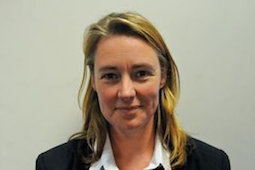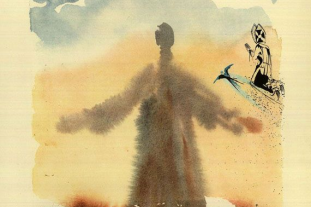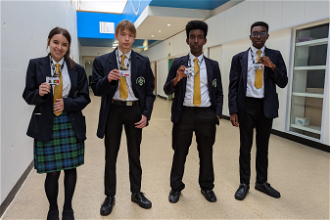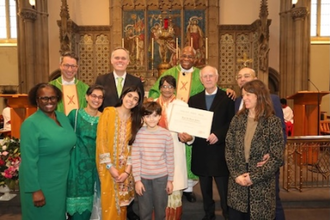Lost in Translation - International Sign Languages Day

Michelle Roca
Michelle Roca, Director of the Caritas Deaf Service writes:
British Sign Language (BSL) and American Sign Language (ASL) are very different, despite the fact that people on both sides of the Atlantic speak English. On one occasion, I was trying to sign to an ASL user and find a way of communicating with them. After several minutes of us both trying and struggling to be understood, the penny dropped; neither of us were Deaf, we could speak to each other in English!
In 2017, the Deaf Community joined with Fr Norbert Fernandes and members of his Welwyn Garden City parish on a pilgrimage to Fatima. Whilst we were there, we stayed in a hotel where a group of Deaf people from Belgium also happened to be staying. In our group, there were Deaf people who had Irish Sign Language as their first language. These Irish Deaf people became my interpreters, translating from BSL to Belgium Sign Language and back again using their knowledge of Irish Sign Language, so I could chat to their group.
Whilst there is a form of International Sign (which was developed by the World Federation of the Deaf for International meetings), International Sign is not recognised as a language. Like Esperanto, International Sign is not used in everyday life.
September 23rd is International Sign Languages Day, during what is the International Week of Deaf People. Figures from the World Federation of the Deaf tell us there are approximately 72 million Deaf people worldwide. Over 80% of Deaf people live in developing countries, and collectively there are more than 300 different sign languages. Despite there being many different languages, many Deaf people around the world face similar struggles about the lack of access to information in their own language.
In the 17th and 18th century in Martha's Vineyard, the occurrence of Deafness in the population greatly exceeded the average seen elsewhere. Possibly due to immigration from a small community of people from the Weald of Kent, levels of hereditary Deafness were high aided by intermarriage within this small community. The recessive gene of Deafness was apparent in many generations of the majority of families who lived there. Deaf people were seen as an everyday part of life; everyone spoke sign language, everyone was included. In Britain in the 21st century, Deaf people are still fighting for equality and access to information in their own language. In March 2003, BSL was recognised as a true language, but nearly 20 years later it still does not have the legal status. Many Deaf people are campaigning to get a BSL Act through parliament, to ensure that Deaf people are not denied basic access to public information again, as highlighted by the absence of a BSL interpreter during the Prime Minister's announcements about lockdown and the Westminster briefings on the pandemic.
We are all brothers and sisters in Christ, one family in faith, Deaf and hearing alike; get to know your Deaf brothers and sisters - and maybe learn sign language.
For more information about the BSL Act Now! Campaign, please visit the BDA website: https://bda.org.uk/bsl-act-now


















